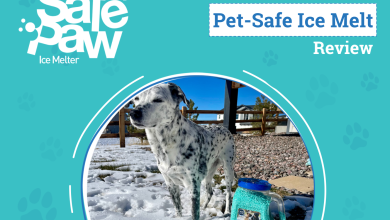
Socialization for dogs is something most owners don’t consciously consider — some just naturally socialize their dogs by taking them many places and exposing them to new situations. Other owners unknowingly end up with problem dogs because of doing the opposite — keeping them in the same environment constantly.
Have you been in a situation where you have adopted a certain dog but do not know if it has normal reactions towards people, or is it too anti-social? Dogs are like every other living creature on this Earth, and they need to go outside, meet new beings, friends, places, and the like. Imagine a child who had been locked away from the world for ages (unfortunately we have seen a few examples in the last 2 years or so). How would you expect him or her to behave during adult life? He or she will have difficulties adjusting to ‘new worlds’ as they were not experienced in childhood. This is the same for our dogs – they also need to be exposed to the world so that they will have confidence in whatever they do.
Socialization for Dogs
If you are a dog owner or a breeder, it is important that you take the pups outside for some fresh air once in a while. Don’t lock them up in the house or in the dog house always – let them be free and meet new people and other dogs, and experience new situations. It is our responsibility not just to take care of them, but also help them grow and immerse themselves into new things, new sights, and new adventures in their lifetime.
So what happens when a dog didn’t get enough socialization as a pup? These things might occur:
- The dog might have the tendency to always fear and run away from a foreign object or someone it doesn’t know or recognize.
- The dog might treat other people and animals it doesn’t recognize as enemies. If it didn’t run away, it uses self-defense, in the form of dog bites and attacks.
Now how about out scenario from the first paragraph? What do we do in such a situation without knowing about a dog’s background? Here are a couple of tips to befriend your dog and keep everything in order:
- Don’t force your dog into new things too quickly. Let your dog take some time to investigate the new things around it. If you, for example, let someone approach your dog, and the dog doesn’t know that person yet, the dog might run away, get scared or worse. It might even attack the person, because he or she is an unfamiliar face for the dog.
- Talk to your colleagues about the dog’s behavior. If your dog doesn’t ‘bark’ at strangers, then tell your guests that they should go easy on the dog, and should never cuddle them by force. Instead, they should wait for the dog to approach them, as the dog is “sizing them up” and probably trying to decide if they are friend or foe.
- Like humans, never judge a dog by its looks. There may be instances that some dogs look so cute and adorable. But when you try to bond with them, it doesn’t really obey your commands. It really depends on the dog you got.
- Show some love and incentive to your dog by giving him a cookie or a treat to re-enforce good behavior. Make your dog feel comfortable, in a gentle way.
Socialization for dogs is something we as responsible masters must work at. If done in their formative puppy years, it is a relatively easy process.
Did you have a “problem” dog when it came to socialization? Please share how you handled it below.



